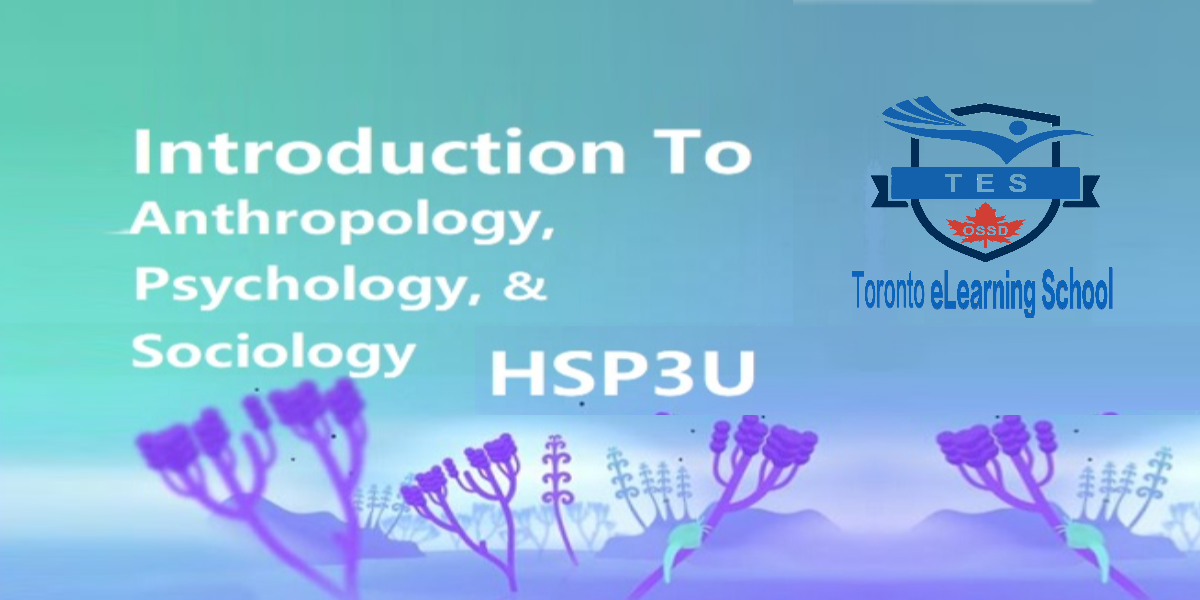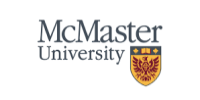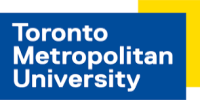HSP3U Introduction to Anthropology, Psychology, and Sociology 11
Course Outline

Course Title: Introduction to Anthropology, Psychology, and Sociology Grade 11
Course Code: HSP3U
Grade: 11
Course Type: University Preparation
Credit Value: 1.0
Prerequisite: Grade 10 academic course in English, or Grade 10 academic History course (Canadian and world studies)
Curriculum Policy Document: Social Sciences and Humanities, The Ontario Curriculum, Grades 9 to 12, 2013 (Revised)
Course Developer: Demo A.
Department: Social Sciences and Humanities
Department Head: Erin Weir, B.A.(Hon), B.Ed., OCT
Developed Date: 2020
Most Recent Revised Date: 2025 by Nicholas M.

Course Description :
HSP3U course provides students with opportunities to think critically about theories, questions, and issues related to anthropology, psychology, and sociology. Students will develop an understanding of the approaches and research methods used by social scientists. They will be given opportunities to explore theories from a variety of perspectives, to conduct social science research, and to become familiar with current thinking on a range of issues within the three disciplines.
| Unit | Unit Titles and Descriptions | Time |
|---|---|---|
| Introduction to the Social Sciences | 2 hours | |
| 1 | Unit One – Anthropology Specific Expectations Anthropology B1.1 explain the significance of contributions of influential anthropologists B1.2 outline the key ideas of the major anthropological schools of thought and explain how they can be used to analyse features of cultural systems B1.3 explain significant issues in different areas of anthropology B1.4 explain the main research methods used for conducting anthropological research and assess critiques of the various methods B2.1 explain, from an anthropological perspective, how various factors influence and shape human behaviour and culture B2.2 describe, from an anthropological perspective, the effects that diffusion,assimilation, and multiculturalism have on culture B2.3 explain how studying cultural systems of different times, places, and groups helps anthropologists understand human behaviour and culture in the present B3.1 explain how culture produces diverse forms of human behaviour B3.2 explain ways in which culture is an agent of socialization Research and Inquiry Skills A1.1 explore a variety of topics related to anthropology to identify topics for research and inquiry A1.2 identify key concepts related to their selected topics A1.3 formulate effective questions to guide their research and iquiry A3.1 assess various aspects of information gathered from primary and secondary sources A3.2 record and organize information and key ideas using a variety of formats A3.3 analyse and interpret research information A3.4 demonstrate academic honesty by documenting the sources of all information generated through research A3.5 synthesize findings and formulate conclusions A4.1 use an appropriate format to communicate the results of their research and inquiry effectively for a specific purpose and audience A4.2 use terms relating to anthropology, psychology, and sociology correctly A4.3 clearly communicate the results of their inquiries A4.4 demonstrate an understanding of the general research process by reflecting on and evaluating their own research, inquiry, and communication skills |
26 hours |
| Research Lessons | 4 hours | |
| Mid Term Assignment | 8 hours | |
| 2 | Unit Two – Psychology Specific Expectations Psychology C1.1 explain the significance of contributions of influential psychologists C1.2 summarize the key ideas of major psychological theories C1.3 explain the contribution to understanding human behaviour of various psychological approaches C1.4 compare the major research methods used for conducting psychological research C2.1 explain, from a psychological perspective, how various influences contribute to an individual’s psychological development C2.2 explain, from a psychological perspective, ways in which context and the influence of other individuals can affect people’s emotional and behavioural responses C2.3 explain how diverse psychological factors influence individual behaviour C3.1 identify and describe the role of socialization in the psychological development of the individual C3.2 assess how diverse personality traits shape human behaviour and interaction in a variety of environments C3.3 analyse the procedures of and ethical problems associated with major psychological experiments in socialization Research and Inquiry Skills A1.1 explore a variety of topics related to psychology to identify topics for research and inquiry A1.2 identify key concepts related to their selected topics A1.3 formulate effective questions to guide their research and inquiry A2.1 create appropriate research plans to investigate their selected topics ensuring that their plans follow guidelines for ethical research A2.2 locate and select information relevant to their investigations from a variety of primary sources and/or secondary sources A2.3 based on preliminary research, for each investigation formulate a hypothesis, thesis statement, or research question, and use it to focus their research A3.1 assess various aspects of information gathered from primary and secondary sources A3.2 record and organize information and key ideas using a variety of formats A3.3 analyse and interpret research information A3.4 demonstrate academic honesty by documenting the sources of all information generated through research A3.5 synthesize findings and formulate conclusions A4.1 use an appropriate format to communicate the results of their research and inquiry effectively for a specific purpose and audience A4.2 use terms relating to anthropology, psychology, and sociology correctly A4.3 clearly communicate the results of their inquiries A4.4 demonstrate an understanding of the general research process by reflecting on and evaluating their own research, inquiry, and communication skills |
24 hours |
| 3 | Unit Three – Sociology Specific Expectations Sociology D1.1 explain the significance of contributions of various theorists to the field of sociology D1.3 identify and explain the main research methods that are used for conducting sociological research, and assess critiques of the various methods D2.1 explain, from a sociological perspective, how diverse factors influence and shape individual and group behaviour D2.2 explain, from a sociological perspective, the relationship between prejudice and individual and systemic discrimination, and describe their impacts on individuals and society D2.3 explain, from a sociological perspective, how diverse influences shape social behaviour D3.1 explain how structural changes take place in social institutions in response to diverse influences D3.2 explain the ways in which social structures (e.g., economy, family, class, race, gender) affect individual and group behaviour D3.3 evaluate the relative influence of primary agents of socialization (e.g., family, peers) and secondary agents of socialization (e.g., media, religion) on the socialization of the individual Research and Inquiry Skills A1.1 explore a variety of topics related to anthropology to identify topics for research and inquiry A2.2 locate and select information relevant to their investigations from a variety of primary sources and/or secondary sources A3.1 assess various aspects of information gathered from primary and secondary sources A3.2 record and organize information and key ideas using a variety of formats A3.3 analyse and interpret research information A3.4 demonstrate academic honesty by documenting the sources of all information generated through research A3.5 synthesize findings and formulate conclusions A4.1 use an appropriate format to communicate the results of their research and inquiry effectively for a specific purpose and audience A4.2 use terms relating to anthropology, psychology, and sociology correctly A4.3 clearly communicate the results of their inquiries A4.4 demonstrate an understanding of the general research process by reflecting on and evaluating their own research, inquiry, and communication skills |
22 hours |
| Final Term Assignment | 12 hours | |
| Review Lessons | 10 hours | |
| Final Exam | 2 hours | |
| Total | 110 hours |
| A. RESEARCH AND INQUIRY SKILLS | |
| A1 | Exploring: explore topics related to families in Canada, and formulate questions to guide their research; |
| A2 | Investigating: create research plans, and locate and select information relevant to their chosen topics, using appropriate social science research and inquiry methods; |
| A3 | Processing Information: assess, record, analyse, and synthesize information gathered through research and inquiry; |
| A4 | Communicating and Reflecting: communicate the results of their research and inquiry clearly and effectively, and reflect on and evaluate their research, inquiry, and communication skills. |
| B. ANTHROPOLOGY | |
| B1 | Theories, Perspectives, and Methodologies: demonstrate an understanding of major theories, perspectives, and research methods in anthropology; |
| B2 | Explaining Human Behaviour and Culture: use an anthropological perspective to explain how diverse factors influence and shape human behaviour and culture; |
| B3 | Socialization: use a cultural anthropology perspective to explain patterns of human socialization. |
| C. PSYCHOLOGY | |
| C1 | Theories, Perspectives, and Methodologies: demonstrate an understanding of major theories, perspectives, and research methods in psychology; |
| C2 | Explaining Human Mental Processes and Behaviour: use a psychological perspective to explain how diverse factors influence and shape human mental processes and behaviour; |
| C3 | Socialization: use a psychological perspective to analyse patterns of socialization. |
| D. SOCIOLOGY | |
| D1 | Theories, Perspectives, and Methodologies: demonstrate an understanding of major theories, perspectives, and research methods in sociology; |
| D2 | Explaining Social Behaviour: use a sociological perspective to explain how diverse factors influence and shape individual and group social behaviour; |
| D3 | Socialization: use a sociological perspective to explain patterns of socialization. |
Teaching / Learning Strategies:
As in a conventional classroom, instructors employ a range of strategies for teaching a course:
- Direct Instruction/Note Taking
- Reading
- Case Studies
- Structured Discussion
- Brainstorming
- Role-Play
- Group Work/Pair Work
- Independent Study/Research
In addition, teachers and students have at their disposal a number of tools that are unique to electronic learning environments:
- Electronic simulation activities
- Video presentations
- Discussion boards and email
- Assessments with real-time feedback
- Interactive activities that engage both the student and teacher in the subject
- Peer review and assessment
- Internet Instructional Videos
All course material is online, no textbook is required. Assignments are submitted electronically. Tests are completed online at a time convenient for the student, and the course ends in a final exam which the student writes under the supervision of a proctor approved by Toronto eLearning School at a predetermined time and place. The final mark and report card are then forwarded to the student’s home school. Students must achieve the Ministry of Education learning expectations of a course and complete 110 hours of planned learning activities, both online and offline, in order to earn a course credit. The chart below indicates some general examples of online and offline activities.
| Online Learning Activities | Offline Learning Activities |
|---|---|
| Watching instructional videos | Reading materials for course |
| Watching additional resources videos | Studying instructional material |
| Completing online timed assignments | Practicing skills |
| Contributing to Forums | Completing assignments |
| Uploading video presentations | Completing essays |
| Communicating with instructor | Preparing presentations |
| Participating in live conferences | Reviewing for tests and exams |
| Practicing through online quizzes | Researching topics on internet |
| Reviewing peer submissions | |
| Assessing peer presentations | |
| Completing online timed exam |
Students are expected to access and participate actively in course work and course forums on a regular and frequent basis. This interaction with other students is a major component of this course and there are minimum requirements for student communication and contribution.
Assessment and Evaluation:
Toronto eLearning School’s approach to assessment and evaluation is based on the Ontario Ministry of Education’s Growing Success 2010 document. Assessment is the process of gathering information that accurately reflects how well a student is achieving the curriculum expectations in a subject or course.
The primary purpose of assessment is to improve student learning. Assessment for this purpose is seen as both “assessment for learning” and “assessment as learning”. As part of assessment for learning, teachers provide students with descriptive feedback and coaching for improvement. Teachers engage in assessment as learning by helping all students develop their capacity to be independent, autonomous learners who are able to set individual goals, monitor their own progress, determine next steps, and reflect on their thinking and learning. TES teachers use evidence from a variety of sources in their assessment. These include formal and informal observations, discussions, conversations, questioning, assignments, projects, portfolios, self-assessments, self-reflections, essays, and tests.
Assessment occurs concurrently and seamlessly with instruction. Our courses contain multiple opportunities for students to obtain information about their progress and achievement, and to receive feedback that will help them improve their learning. Students can monitor their own success through the tracking of learning goals and success criteria throughout all courses.
Summative “assessment of learning” activities occur at or near the end of periods of learning. Evidence of student achievement for evaluation is also collected over time from different sources, such as discussions, conversations and observation of the development of the student’s learning. Using multiple sources of evidence increases the reliability and validity of this evaluation. The evaluations are expressed as a percentage based upon the levels of achievement.
Strategies for Assessment and Evaluation of Student Performance
| Assessment as Learning | Assessment for Learning | Assessment of Learning |
| In all Units students can complete an online practice quiz on each lesson that tests their knowledge of fundamental facts and definitions. The quiz can be retaken as many times as needed and only the highest score is recorded. Students discover their areas of weakness and can take steps to improve on them. The student and instructor can then have a conversation on how best to assist the student’s learning. | In all Units, students are expected to submit a mid-unit assignment directly to the instructor. The assignment provides a number of questions, problems, and activities balanced around the four categories of the Achievement Chart: Knowledge and Understanding, Thinking, Application, and Communication. The instructor provides descriptive feedback and the student is asked to provide feedback on the feedback. | Each Unit ends with an assignment that is submitted directly to the instructor. A grade is recorded based on the Learning Goals and Success Criteria for that Unit. Students may be asked to resubmit parts of the assignment, or a modified assignment. |
| A Mid-Unit Assignment asks students to videotape themselves presenting solutions to various problems, or results of research, and post them to the forum for review by the instructor and selected peers. These comments and observations can be used to help the student assess their own listening and communicating skills, as well as their progress through the course. Feedback from both the instructor and the student can help the student advocate for their own learning. | Mid-Unit Video Presentation Assignments are used by the instructor as a form of diagnostic and formative assessment to help adjust instruction based on the needs of the student. It is another way the instructor gathers evidence for evaluating student performance. | At the end of each Unit, students complete an online test of the material. A grade is recorded and the instructor can initiate a conversation with the student if there are concerns. |
| Instructors communicate with their students through email or live chat sessions. Students can raise concerns and reflect on their own personal goals and learning during these one to one conversations with their instructors. | Occasionally instructors ask a student to post a solution to a unique problem designed for that student to the discussion forum, or to comment on the posting of another student. These activities provide an opportunity for the instructor to provide feedback to the student. | At the end of the course, students complete a final exam that covers all the material studied in the course. |
Growing Success articulates the vision the Ministry has for the purpose and structure of assessment and evaluation techniques. There are seven fundamental principles that ensure best practices and procedures of assessment and evaluation by TES teachers. Assessment and evaluations:
- are fair, transparent, and equitable for all students;
- support all students, including those with special education needs, those who are learning the language of instruction (English or French), and those who are First Nation, Metis, or Inuit;
- are carefully planned to relate to the curriculum expectations and learning goals and, as much as possible, to the interests, learning styles and preferences, needs, and experiences of all students;
- are communicated clearly to students and parents at the beginning of the school year or course and at other appropriate points throughout the school year or course;
- are ongoing, varied in nature, and administered over a period of time to provide multiple opportunities for students to demonstrate the full range of their learning;
- provide ongoing descriptive feedback that is clear, specific, meaningful, and timely to support improved learning and achievement
- develop students’ self-assessment skills to enable them to assess their own learning, set specific goals, and plan next steps for their learning.
The Final Grade
The evaluation for this course is based on the student’s achievement of curriculum expectations and the demonstrated skills required for effective learning. The percentage grade represents the quality of the student’s overall achievement of the expectations for the course and reflects the corresponding level of achievement as described in the achievement chart for the discipline. A credit is granted and recorded for this course if the student’s grade is 50% or higher. The final grade for this course will be determined as follows:
- 70% of the grade will be based upon evaluations conducted throughout the course. This portion of the grade will reflect the student’s most consistent level of achievement throughout the course, although special consideration will be given to more recent evidence of achievement.
- 30% of the grade will be based on a final assessment, which may be a final exam, a final project, or a combination of both an exam and a project.
Final Grade Weight Breakdown
| 60% | Course works |
| 10% | Mid Term Assignment |
| 10% | Final Culminating |
| 20% | Final Exam |
The general balance of weighting of the categories of the achievement chart throughout the course is
| Knowledge and Understanding | 25% |
| Thinking | 25% |
| Communication | 25% |
| Application | 25% |
The Report Card
Two official report cards are issued – midterm and final. Each report card will focus on two distinct but related aspects of student achievement. First, the achievement of curriculum expectations is reported as a percentage grade. Additionally, the course median is reported as a percentage. The teacher will also provide written comments concerning the student’s strengths, areas for improvement and next steps. Second, the learning skills are reported as a letter grade, representing one of four levels of accomplishment. The report cards contain separate sections for the reporting of these two aspects. The report card also indicates whether an OSSD credit has been earned.
Achievement Chart: Overall
The purpose of the achievement chart is to:
- provide a common framework that encompasses all curriculum expectations for all courses;
- guide the development of high-quality assessment tasks and tools;
- help teachers plan instruction for learning;
- assist teachers in providing meaningful feedback to students;
- provide various categories/criteria with which to assess and evaluate students’ learning.
The achievement chart provides a reference point for all assessment practice and a framework within which achievement will be assessed and evaluated.
- The chart is organized into four broad criteria; Knowledge / Understanding, Thinking / Investigation, Communication, and Application.
- The achievement chart describes the levels of achievement of the curriculum expectations within each subset of criteria.
- The “descriptor” indicates the characteristic of performance, with respect to a particular criterion, on which assessment or evaluation is focused.
- A specific “qualifier” is used to define each of the four levels of achievement. It is used along with a descriptor to produce a description of performance at a particular level.
- The following table provides a summary description of achievement in each percentage grade range and corresponding level of achievement:
| A Summary Description of Achievement in Each Percentage Grade Range and Corresponding Level of Achievement | ||
| Percentage Grade Range | Achievement Level | Summary Description |
| 80-100% | Level 4 | A very high to outstanding level of achievement. Achievement is above the provincial standard. |
| 70-79% | Level 3 | A high level of achievement. Achievement is at the provincial standard. |
| 60-69% | Level 2 | A moderate level of achievement. Achievement is below, but approaching, the provincial standard. |
| 50-59% | Level 1 | A passable level of achievement. Achievement is below the provincial standard. |
| below 50% | Level R | Insufficient achievement of curriculum expectations. A credit will not be granted. |
Achievement Chart – Social Sciences and Humanities, Grades 9–12
| Knowledge and Understanding – Subject-specific content acquired in each course (knowledge), and the comprehension of its meaning and significance (understanding) | ||||
| The student: | ||||
| Knowledge of content (e.g., facts, terms, definitions, safe practices and procedures, use of technologies) | demonstrates limited knowledge of content | demonstrates some knowledge of content | demonstrates considerable knowledge of content | demonstrates thorough knowledge of content |
| Understanding of content (e.g., concepts, theories, ideas, processes; relationship between theory and action) | demonstrates limited understanding of content | demonstrates some understanding of content | demonstrates considerable understanding of content | demonstrates thorough and insightful understanding of content |
| Thinking – The use of critical and creative thinking skills and/or processes | ||||
| The student: | ||||
| Use of planning skills (e.g., formulating questions, identifying problems, gen ¬ erating ideas, gathering and organizing information, focusing research, selecting strategies) | uses planning skills with limited effectiveness | uses planning skills with moderate effectiveness | uses planning skills with considerable effectiveness | uses planning skills with a high degree of effectiveness |
| Use of processing skills (e.g., analysing, detecting point of view and bias, interpreting, evaluating, synthesizing, forming conclusions) | uses processing skills with limited effectiveness | uses processing skills with some effectiveness | uses processing skills with considerable effectiveness | uses processing skills with a high degree of effectiveness |
| Use of critical/creative thinking processes (e.g., goal setting, decision making, problem solving, invention, critiquing, reviewing) | uses critical / creative thinking processes with limited effectiveness | uses critical / creative thinking processes with some effectiveness | uses critical / creative thinking processes with considerable effectiveness | uses critical / creative thinking processes with a high degree of effectiveness |
| Communication – The conveying of meaning through various forms | ||||
| The student: | ||||
| Organization and expression of ideas, information, and understandings in oral, visual, and/or written forms (e.g., oral: role plays, interviews, presentations, debates; visual: demonstrations, multimedia presentations, posters, graphic organizers; written: pamphlets, journals, reports, web pages) | organizes and expresses ideas, information, and understandings with limited effectiveness | organizes and expresses ideas, information, and understandings with some effectiveness | organizes and expresses ideas, information, and understandings with considerable effectiveness | organizes and expresses ideas, information, and understandings with a high degree of effectiveness |
| Communication for different audiences (e.g., peers, adults, younger children, community members) and purposes (e.g., to inform, instruct, persuade) in oral, visual, and/or written forms | communicates for different audiences and purposes with limited effectiveness | communicates for different audiences and purposes with some effectiveness | communicates for different audiences and purposes with considerable effectiveness | communicates for different audiences and purposes with a high degree of effectiveness |
| Use of conventions (e.g., research conventions such as surveys, documentation conventions, communication conventions),vocabulary, and terminology of the discipline in oral, visual, and/or written forms | uses conventions, vocabulary, and terminology of the discipline with limited effectiveness | uses conventions, vocabulary, and terminology of the discipline with some effectiveness | uses conventions, vocabulary, and terminology of the discipline with considerable effectiveness | uses conventions, vocabulary, and terminology of the discipline with a high degree of effectiveness |
| Application – The use of knowledge and skills to make connections within and between various contexts | ||||
| The student: | ||||
| Application of knowledge and skills (e.g., concepts, procedures, processes, methodologies, technologies) in familiar contexts | applies knowledge and skills in familiar contexts with limited effectiveness | applies knowledge and skills in familiar contexts with some effectiveness | applies knowledge and skills in familiar contexts with considerable effectiveness | applies knowledge and skills in familiar contexts with a high degree of effectiveness |
| Transfer of knowledge and skills to new contexts (e.g., other subjects; experiences in the family, community, society; using theory to help understand personal experiences) | transfers knowledge and skills to new contexts with limited effectiveness | transfers knowledge and skills to new contexts with some effectiveness | transfers knowledge and skills to new contexts with considerable effectiveness | transfers knowledge and skills to new contexts with a high degree of effectiveness |
| Making connections within and between various contexts (e.g., past, present, future; environmental, personal, social, religious, cultural, socio-economic contexts) | makes connections within and between various contexts with limited effectiveness | makes connections within and between various contexts with some effectiveness | makes connections within and between various contexts with considerable effectiveness | makes connections within and between various contexts with a high degree of effectiveness |
Note: A student whose achievement is below 50% at the end of a course will not obtain a credit for the course.
Resources required by students
- Access to HSP3U online course of study
- Access to a scanner or digital camera
- Access to a word-processing software
- Access to Google and various online resources
- Access to Youtube
Reference Texts This course is entirely online and does not require or rely on any textbook.
Program Planning Considerations for Social Sciences
Program Planning Considerations Teachers who are planning a program in this subject will make an effort to take into account considerations for program planning that align with the Ontario Ministry of Education policy and initiatives in a number of important areas.
- Education for students with special education needs
- Environmental education
- Equity and inclusive education
- Financial literacy education
- Ontario First Nations, Metis, and Inuit education
- Role of information and communications technology
- English language learners
- Career education
- Cooperative education and other workplace experiences
- Health and safety
- Education for Students with Special Education Needs:
Toronto eLearning School is committed to ensuring that all students are provided with the learning opportunities and supports they require to gain the knowledge, skills, and confidence they need to succeed in a rapidly changing society. The context of special education and the provision of special education programs and services for exceptional students in Ontario are constantly evolving.
Provisions included in the Canadian Charter of Rights and Freedoms and the Ontario Human Rights Code have driven some of these changes. Others have resulted from the evolution and sharing of best practices related to the teaching and assessment of students with special educational needs. The provision of special education programs and services for students at Toronto eLearning School rests within a legal framework The Education Act and the regulations related to it set out the legal responsibilities pertaining to special education. They provide comprehensive procedures for the identification of exceptional pupils, for the placement of those pupils in educational settings where the special education programs and services appropriate to their needs can be delivered, and for the review of the identification of exceptional pupils and their placement.
Teachers will take into account the needs of exceptional students as set out in the students’ Individual Education Plan. The online courses offer a vast array of opportunities for students with special educations needs to acquire the knowledge and skills required for our evolving society. Students who use alternative techniques for communication may find a venue to use these special skills in these courses. There are a number of technical and learning aids that can assist in meeting the needs of exceptional students as set out in their Individual Education Plan. In the process of taking their online course, students may use a personal amplification system, tela-typewriter (via Bell relay service), an oral or a sign-language interpreter, a scribe, specialized computer programs, time extensions, ability to change font size, oral readers, etc. - Environmental Education:
Environmental education teaches students about how the planet’s physical and biological systems work, and how we can create a more sustainable future. Good curriculum design allows environmental issues and topics to be woven in and out of the online course content. This ensures that the student will have opportunities to acquire the knowledge, skills, perspectives and practices needed to become an environmentally literate citizen. The online course should provide opportunities for each student to address environmental issues in their home, in their local community, or even at the global level. - Equity and Inclusive Education:
Toronto eLearning School is taking important steps to reduce discrimination and embrace diversity in our online school in order to improve overall student achievement and reduce achievement gaps due to discrimination. The Ontario Equity and Inclusive Education Strategy was launched in April 2009 and states that all members of the Toronto eLearning School community are to be treated with respect and dignity. This strategy is helping Toronto eLearning School educators better identify and remove discriminatory biases and systemic barriers to student achievement. These barriers related to racism, sexism, homophobia and other forms of discrimination may prevent some students from reaching their full potential. The strategy supports the Ministry’s key education priorities of high student achievement, reduced gaps in student achievement and increased accountability and public confidence in Ontario’s schools. Students, regardless of their background or personal circumstances, must be given every opportunity to reach their full potential. Research shows that when students feel welcomed and accepted in their school, they are more likely to succeed academically. Toronto eLearning School desires to create a culture of high expectations where factors such as race, age, gender, sexual orientation and socio-economic status do not prevent students from achieving ambitious outcomes. - Financial Literacy Education:
Financial literacy may be defined as having the knowledge and skills needed to make responsible economic and financial decisions with competence and confidence. Since making financial decisions has become an increasingly complex task in the modern world, students need to have knowledge in various areas and a wide range of skills in order to make informed decisions about financial matters. Students need to be aware of risks that accompany various financial choices. They need to develop an understanding of world economic forces as well as ways in which they themselves can respond to those influences and make informed choices. Toronto eLearning School considers it essential that financial literacy be considered an important attribute of a well-educated population. In addition to acquiring knowledge in such specific areas as saving, spending, borrowing, and investing, students need to develop skills in problem solving, inquiry, decision making, critical thinking, and critical literacy related to financial and other issues. The goal is to help students acquire the knowledge and skills that will enable them to understand and respond to complex issues regarding their own personal finances and the finances of their families, as well as to develop an understanding of local and global effects of world economic forces and the social, environmental, and ethical implications of their own choices as consumers. The Ministry of Education and Toronto eLearning School are working to embed financial literacy expectations and opportunities in all courses as appropriate, as part of the ongoing curriculum review process. - Ontario First Nations, Metis, and Inuit Education:
First Nation, Metis, and Inuit students in Ontario will need to have the knowledge, skills, and confidence they need to successfully complete their elementary and secondary education in order to pursue postsecondary education or training and/or to enter the workforce. They will need to have the traditional and contemporary knowledge, skills, and attitudes required to be socially contributive, politically active, and economically prosperous citizens of the world. All students in Ontario will need to have knowledge and appreciation of contemporary and traditional First Nation, Metis, and Inuit traditions, cultures, and perspectives. Toronto eLearning School and the Ministry of Education are committed to First Nation, Metis, and Inuit student success. TES teachers are committed to
(1) developing strategies that will increase the capacity of the education system to respond to the learning and cultural needs of First Nation, Metis, and Inuit students;
(2) providing quality programs, services, and resources to help create learning opportunities for First Nation, Metis, and Inuit students that support improved academic achievement and identity building;
(3) providing a curriculum that facilitates learning about contemporary and traditional First Nation, Metis, and Inuit cultures, histories, and perspectives among all students where possible; and
(4) developing and implementing strategies that facilitate increased participation by First Nation, Metis, and Inuit parents, students, communities, and organizations in working to support the academic success of the student. - The Role of Information and Communications Technology in the Curriculum.
Information literacy is the ability to access, select, gather, critically evaluate, and create information. Communication literacy refers to the ability to communicate information and to use the information obtained to solve problems and make decisions. Information and communications technologies are utilized by all TES students when the situation is appropriate within their online course. As a result, students will develop transferable skills through their experience with word processing, internet research, presentation software, and telecommunication tools, as would be expected in any other course or any business environment. - English Language Learners:
This Toronto eLearning School online course can provide a wide range of options to address the needs of ESL/ELD students. This online course must be flexible in order to accommodate the needs of students who require instruction in English as a second language or English literacy development. The TES teacher considers it to be their responsibility to help students develop their ability to use the English language properly. Appropriate modifications to teaching, learning, and evaluation strategies in this course may be made in order to help students gain proficiency in English, since students taking English as a second language at the secondary level have limited time in which to develop this proficiency. This online course can provide a wide range of options to address the needs of ESL/ELD students. Well written content will aid ESL students in mastering not only the content of this course, but as well, the English language and all of its idiosyncrasies. Toronto eLearning School has created course content to enrich the student’s learning experience. In addition, since many occupations in Canada require employees with capabilities in the English language, many students will learn English language skills which can contribute to their success in the larger world. - Career Education:
As the online student progresses through their online course, their teacher is available to help the student prepare for employment in a huge number of diverse areas. With the help of their teacher, students will learn to set and achieve goals and will gain experience in making meaningful decisions concerning their career choices. The skills, knowledge and creativity that students acquire through this online course are essential for a wide range of careers. Throughout their secondary school education, students will learn about the educational and career opportunities that are available to them; explore and evaluate a variety of those opportunities; relate what they learn in their courses to potential careers in a variety of fields; and learn to make appropriate educational and career choices. - Cooperative Education and Other Workplace Experiences:
By applying the skills they have developed, students will readily connect their classroom learning to real-life activities in the world in which they live. Cooperative education and other workplace experiences will broaden their knowledge of employment opportunities in a wide range of fields. In addition, students will increase their understanding of workplace practices and the nature of the employer-employee relationship. TES teachers will try to help students link to Ministry programs to ensure that students have information concerning programs and opportunities. - Health and Safety:
The study of healthy relationships occurs throughout the social sciences and humanities curriculum. For example, the Dynamics of Human Relationships course provides opportunities for students to explore the topic of healthy relationships and to develop strong social skills and communication strategies. This course also explores the barriers to forming strong, healthy relationships and provides students with important information about how to recognize and respond to unhealthy relationships. The equity studies courses provide opportunities for students to develop their understanding of the ways in which power dynamics are an integral component of all relationships. These courses also allow students to explore the ways in which core aspects of identity – including sex, gender and gender identity, and ethnocultural and religious background – contribute to power dynamics that can facilitate or hinder the formation of healthy relationships. The knowledge, skills, and habits of mind that are addressed in all courses in social sciences and humanities encourage open-mindedness as well as respect for and deep understanding of self and others, providing a foundation for forming and maintaining healthy relationships.

 "Hey, Rebecca, Thank you so much for your help. I don't think there is anyone in education who helped me more than you.
I got the final confirmation email and finally got into McMaster thank you for all your help.
I owe my success in university admission to you and Toronto eLearning School."
Hadi Khan, Life Science in McMaster University
"Hey, Rebecca, Thank you so much for your help. I don't think there is anyone in education who helped me more than you.
I got the final confirmation email and finally got into McMaster thank you for all your help.
I owe my success in university admission to you and Toronto eLearning School."
Hadi Khan, Life Science in McMaster University "My name is Kasra Zarbakhsh in Iran. I enjoyed my study at Toronto eLearnihng School with the kind staff. I suggest studying at eLearning School for those International or Canadian students who want to earn the OSSD.
I earned eight credits with eLearning School, got two university offers, and got an OSSD.
Warm regards to Principal & Vice-Principal of Toronto eLearning School, Mr. Bowyer & Ms. Wang."
Kasra Zarbakhsh, Business Administration of Legal Studies in Trent University.
"My name is Kasra Zarbakhsh in Iran. I enjoyed my study at Toronto eLearnihng School with the kind staff. I suggest studying at eLearning School for those International or Canadian students who want to earn the OSSD.
I earned eight credits with eLearning School, got two university offers, and got an OSSD.
Warm regards to Principal & Vice-Principal of Toronto eLearning School, Mr. Bowyer & Ms. Wang."
Kasra Zarbakhsh, Business Administration of Legal Studies in Trent University. "Hello miss, I have got my marks. Thank you so much at the end. you helped me a lot with this course. Your feedbacks were very effective to me.
I got many experiences with this. I really appreciate your kindness to refer my mails and reply them all and give feedbacks for my resubmitted assignments as well.
Lucky to have a teacher like you miss. Thank you so much and wish your future works with my best."
Naveen Srimal Kandamulla, Medicine in Manipal Medical University
"Hello miss, I have got my marks. Thank you so much at the end. you helped me a lot with this course. Your feedbacks were very effective to me.
I got many experiences with this. I really appreciate your kindness to refer my mails and reply them all and give feedbacks for my resubmitted assignments as well.
Lucky to have a teacher like you miss. Thank you so much and wish your future works with my best."
Naveen Srimal Kandamulla, Medicine in Manipal Medical University I am writing to express my deepest gratitude for your unwavering support and guidance throughout my academic journey with eLearning School.
Your dedication and expertise have been instrumental in my success in the course, and I cannot thank you enough for your invaluable contributions.
Thank you for being an exceptional educator at eLearning School and for making a positive impact on my life. I wish you continued success and fulfillment in your teaching career.
With utmost respect and gratitude, Zaid Hassan
I am writing to express my deepest gratitude for your unwavering support and guidance throughout my academic journey with eLearning School.
Your dedication and expertise have been instrumental in my success in the course, and I cannot thank you enough for your invaluable contributions.
Thank you for being an exceptional educator at eLearning School and for making a positive impact on my life. I wish you continued success and fulfillment in your teaching career.
With utmost respect and gratitude, Zaid Hassan "Dear Rebecca, Thank you very much for attaching Michael's OSSD and transcript.
Michael has received all his offers from Ryerson University, York University, University of Toronto and Mississauga, U of T.
We would also like to thank you for your wishes. We are very proud of Michael and his accomplishments! Thank you once again."
Anna k., ASSISTANT REGISTRAR, VICTORIA COLLEGE IN THE UNIVERSITY OF TORONTO
"Dear Rebecca, Thank you very much for attaching Michael's OSSD and transcript.
Michael has received all his offers from Ryerson University, York University, University of Toronto and Mississauga, U of T.
We would also like to thank you for your wishes. We are very proud of Michael and his accomplishments! Thank you once again."
Anna k., ASSISTANT REGISTRAR, VICTORIA COLLEGE IN THE UNIVERSITY OF TORONTO "Dear Rebecca, hope you are doing well.
I am taking this opportunity to thank you so much for the accompaniment, advise and the push done on Williane 's during her studies at Toronto eSchool. It was so benefic to her as now, she fitted very well into the University system... she started with 2 courses and has succeeded with a grade of B+ and A.... she promised to get A+ moving forward... at least, she started with good marks compared the way I was so so much worried about her performance. I have a confident she will be able to finish her studies withing the 4 academic years.
Again, find my sincere gratitude for the journey and support from your side; I will never forget about your advise, push, reminders, mails.... All to get Williane succeed her Grade 12. You are very professional and I m thank God I found a such professional and parent teacher. Remain blessed."
Honorine N., Procurement Manager, United Nations Children's Fund (UNICEF)
"Dear Rebecca, hope you are doing well.
I am taking this opportunity to thank you so much for the accompaniment, advise and the push done on Williane 's during her studies at Toronto eSchool. It was so benefic to her as now, she fitted very well into the University system... she started with 2 courses and has succeeded with a grade of B+ and A.... she promised to get A+ moving forward... at least, she started with good marks compared the way I was so so much worried about her performance. I have a confident she will be able to finish her studies withing the 4 academic years.
Again, find my sincere gratitude for the journey and support from your side; I will never forget about your advise, push, reminders, mails.... All to get Williane succeed her Grade 12. You are very professional and I m thank God I found a such professional and parent teacher. Remain blessed."
Honorine N., Procurement Manager, United Nations Children's Fund (UNICEF)













